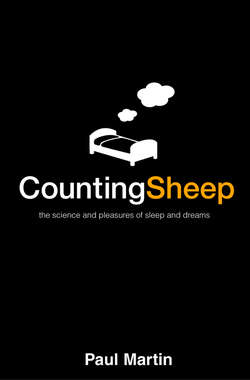Читать книгу Counting Sheep: The Science and Pleasures of Sleep and Dreams - Paul Martin - Страница 31
4 The Golden Chain
ОглавлениеSleep is that golden chain that ties health and our bodies together.
Thomas Dekker, The Guls Horn Book (1609)
We have seen some of the bad things that sleep deprivation does to our minds. What does it do to our bodies? Sleep and physical health are intimately intertwined, which means that inadequate sleep can cause all sorts of physical problems. When sleep deprivation is taken to the extreme, death ensues. Some scientists have argued that many of us neglect or mismanage our sleep to the extent that it damages our health, and that large numbers of people around the world die prematurely every year because of undiagnosed and untreated sleep disorders.
What, then, is the scientific evidence that sleep impinges on our physical health? Some (admittedly crude) indicators point towards a link between poor sleep and poor physical health. For instance, people who are sleepy during the day are more likely to use healthcare. And older people who complain of poor sleep are at greater risk of a heart attack. One American study that tracked thousands of elderly people discovered that individuals with sleep problems were more likely to suffer a heart attack over the following three years.
Lack of sleep and the resulting daytime tiredness are associated with greater sickness absence from work. An investigation of absenteeism among French employees found that those who reported feeling very sleepy at least three days a week were more than twice as likely to take sick leave as their less sleepy colleagues. Sleep problems are also predictive of long-term work disability. Norwegian research found that adults who were experiencing mediocre or poor sleep were more than twice as likely to face long-term work disability a few years later. People who sleep badly also tend to eat badly, which may contribute to their health problems.
Good sleep, on the other hand, fosters mental and physical health. Psychological wellbeing, physical health and longevity are all statistically associated with healthy lifestyle practices, one of which is good sleep. The lifestyle factors associated with a lower risk of dying prematurely include taking physical exercise, not smoking and getting seven or eight hours of sleep a night. For example, recent research that investigated longevity in Japanese people uncovered three important factors, each of which was independently linked with a reduced risk of dying. These factors were walking for at least one hour a day, ikigai (a sense that your life is meaningful), and sleeping for at least seven hours a night. There is even some tentative evidence that people who habitually go to bed early live longer. A study of people aged over 80 found that these long-lived individuals all reported having gone to bed early throughout their lives. However, retrospective evidence of this sort must always be taken with a large pinch of salt. (But not too much salt, because that would be unhealthy.)
At the other extreme, excessive sleep is also linked statistically with poor health – probably because sleeping for unusually long periods is often a sign of illness. Scientists discovered in the 1970s that people whose normal nightly sleep duration was either unusually short (less than four hours) or unusually long (more than nine or ten hours) had a higher than average risk of dying prematurely. Similarly, a study of elderly British people found that those who spent 12 or more hours a day in bed had a significantly higher mortality rate, while those who spent the proverbial eight hours a day in bed had the lowest mortality rate.
Excessively long sleep is often a consequence of heart disease or other medical conditions, so it would be a mistake to generalise this finding very far. There is no reason to suppose, for example, that sleep-deprived teenagers or exhausted adults who lie in bed at the weekends will die younger as a consequence of snatching a few extra hours of rest. Too much sleep can make you feel temporarily below par, however. Experiments have confirmed that healthy people who normally feel refreshed after eight hours of sleep tend to feel groggy and perform badly after they have slept (on request) for 10 or 11 hours. On the other hand, how many healthy adults routinely sleep for 10 or 11 hours at a time? Few of us have any reason to fret about the dangers of sleeping too much.
